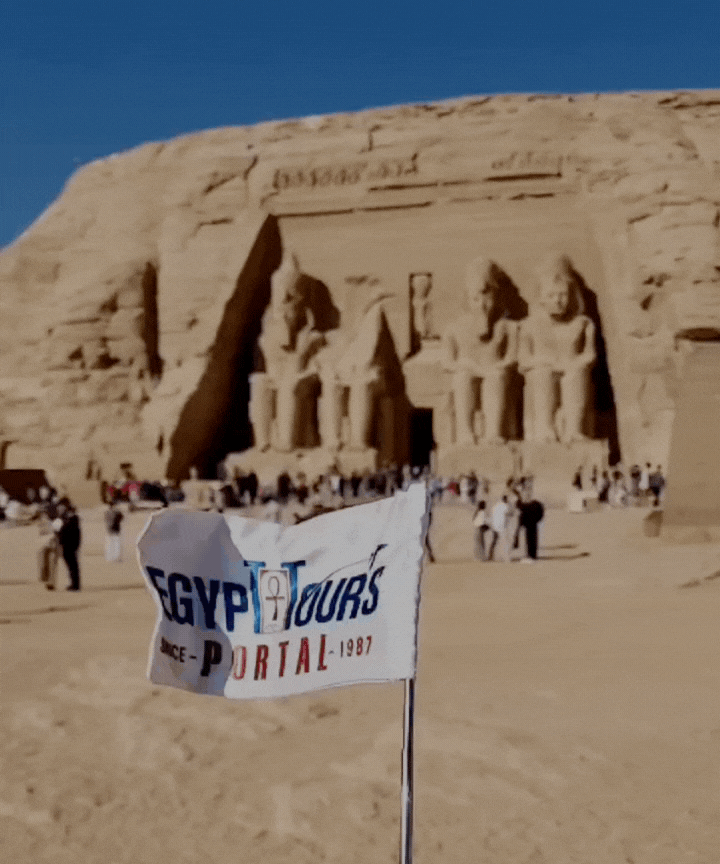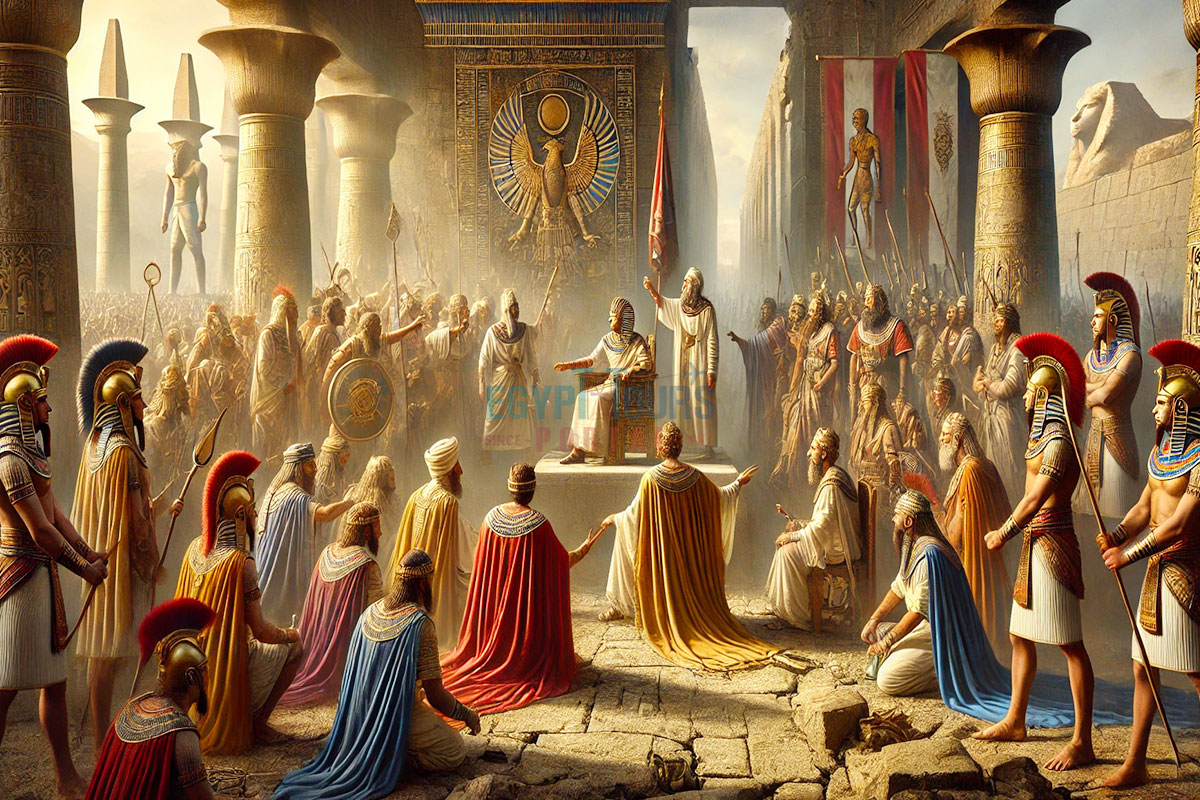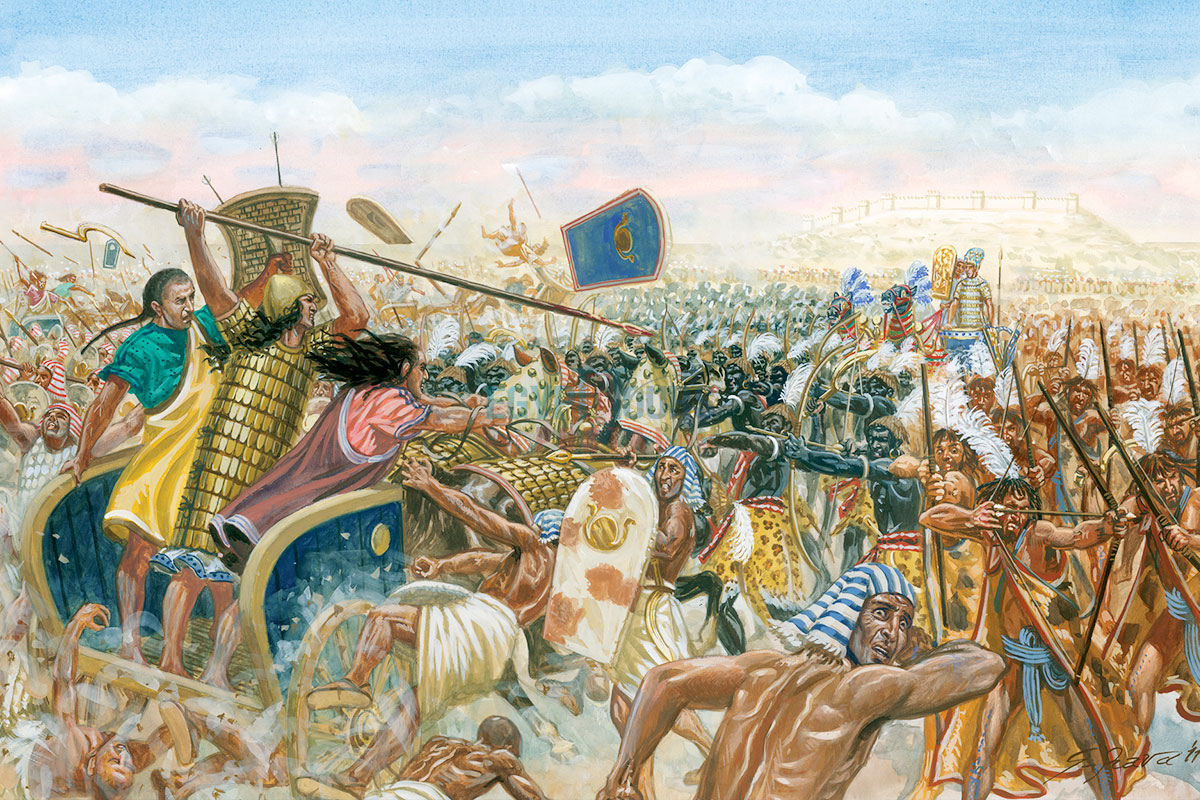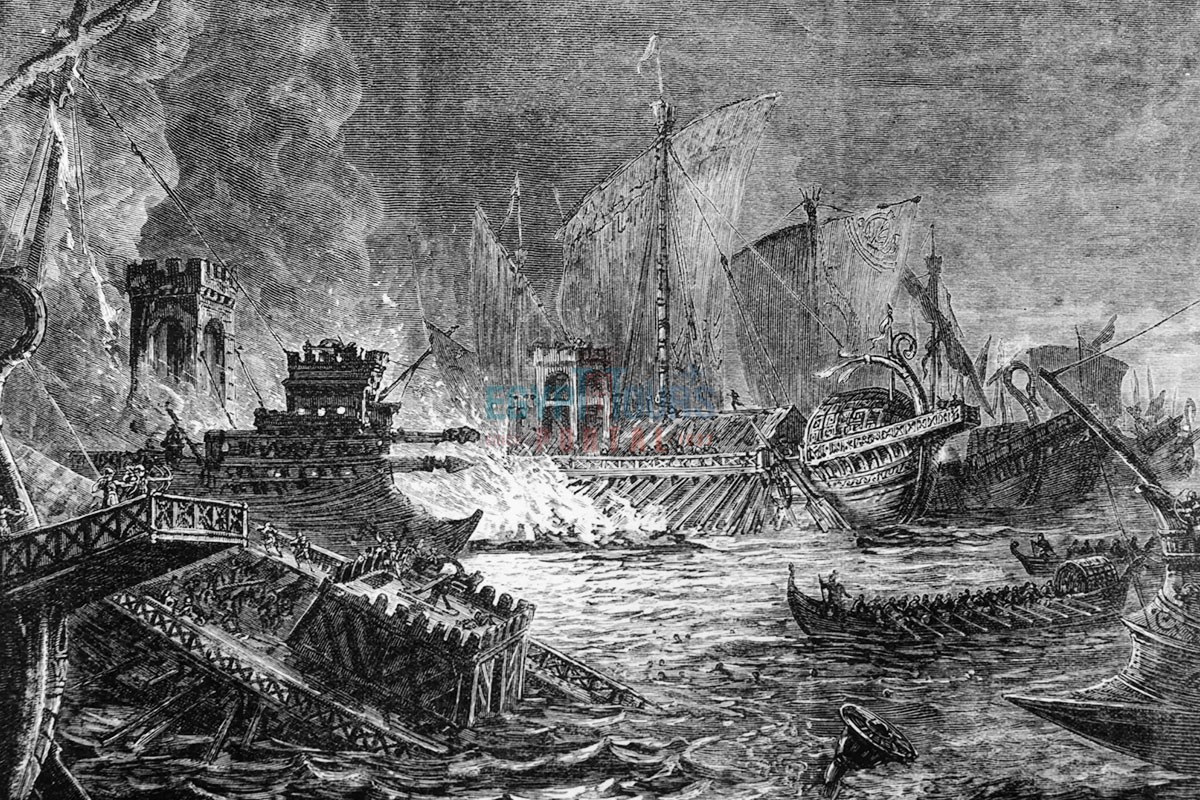- Local Time: 10:13 PM
- Weather: 13 ℃ / 56 ℉
Explore the complex factors that led to the fall of Ancient Egypt, including political instability, foreign invasions, economic decline, and environmental challenges. Despite its collapse, Egypt's enduring cultural legacy continues to fascinate and inspire the world today.


The fall of Ancient Egypt was a multifaceted process driven by political instability, economic decline, foreign invasions, and environmental challenges. These factors worked in concert to erode the foundations of a once-mighty civilization, ultimately leading to its subjugation and transformation under successive foreign powers. The consequences of Egypt's decline resonate in its enduring legacy and influence on world history.

Political instability was one of the most critical internal factors contributing to Egypt's downfall. The death of influential Ancient Egyptian Pharaohs, such as Ramses III, around 1155 BCE, marked the beginning of a decline in centralized authority.
His assassination led to civil unrest and competing factions vying for power, resulting in the division of Egypt into rival regions. Successive rulers lacked the strength and political acumen to stabilize the state, eroding public confidence in the monarchy and leaving the civilization vulnerable to external threats.
The growing influence of religious leaders and the wealth concentrated among the priestly class created significant socio-economic divides. Disputes over resources and priorities weakened national unity.
Religious elites controlled vast estates, drawing resentment from common citizens and undermining the pharaoh's authority. This imbalance distracted Egypt's leadership from external challenges, leaving the state ill-prepared for foreign invasions and economic decline.

Many Ancient Egyptian battles and Foreign invasions marked turning points in Egypt's decline. The Assyrians invaded Egypt in 671 BCE, imposing a period of occupation and destabilizing the nation. Vassal kings were installed, weakening Egypt’s military and political autonomy.
The Persian conquest under Cambyses II in 525 BCE further eroded Egyptian sovereignty, integrating the country into the Achaemenid Empire. Heavy taxation and forced tributes worsened economic struggles, fueling internal dissent and weakening Egypt's resistance to future invasions.
After Alexander the Great’s conquest in 332 BCE, Egypt came under the rule of the Ptolemaic dynasty. While this era brought cultural advancements, it was fraught with internal strife and economic mismanagement.
The Ptolemies struggled to gain the loyalty of the native Egyptian population, relying heavily on foreign mercenaries and oppressive taxation. These issues culminated in the Roman conquest following Cleopatra VII’s defeat at the Battle of Actium in 31 BCE, marking the end of the Ptolemaic dynasty and the annexation of Egypt as a Roman province in 30 BCE.

Egypt’s prosperity was historically tied to its agricultural success, reliant on the predictable flooding of the Nile River. However, environmental changes, such as erratic flooding and prolonged droughts, disrupted agricultural output.
This decline caused food shortages and famine, destabilizing the economy and fueling social unrest. As trade routes became less secure and Egypt relied more heavily on imports, its once-thriving economy further weakened.
Continuous wars and foreign invasions drained Egypt's resources. Maintaining a strong military to repel invaders, coupled with heavy taxation imposed by foreign rulers, left the economy in tatters.
Resources that could have supported infrastructure and public welfare were diverted to military campaigns, exacerbating economic disparities and heightening discontent among the population.
Examine intriguing details about the Economy of Ancient Egypt.
Read More
Cleopatra VII sought to preserve Egypt’s sovereignty through strategic alliances with Roman leaders such as Julius Caesar and Mark Antony.
While these efforts briefly bolstered Egypt’s position, they highlighted its dependence on Roman influence. Cleopatra’s reign symbolized the last attempt to revive Egyptian power, balancing traditional practices with the pressures of a dominating foreign presence.
The decisive Battle of Actium in 31 BCE marked the beginning of the end for Egypt. Cleopatra and Mark Antony’s defeat at the hands of Octavian (later Augustus) sealed Egypt’s fate.
Cleopatra’s suicide in 30 BCE, following the Roman annexation, ended the Ptolemaic dynasty and Egypt’s era of pharaonic rule. Egypt’s transformation into a Roman province signaled a profound shift in its political and cultural landscape.

The Nile River was central to Egypt’s agricultural and economic success. However, shifts in climate caused irregular flooding patterns and prolonged droughts, leading to food shortages and widespread famine. These environmental challenges strained the state’s ability to support its population and respond to social unrest.
The decline in agricultural productivity led to famine, which, combined with poor living conditions, facilitated the spread of disease. These crises weakened the population, reduced workforce capacity, and intensified social discontent, further destabilizing Egypt during its final years of independence.

Despite its decline, Ancient Egypt’s cultural achievements left a lasting impact on world history. Its monumental architecture, artistic styles, and religious practices influenced later civilizations, particularly the Greeks and Romans. Ancient concepts, such as the Ancient Egyptian afterlife and symbolic Ancient Egyptian art, shaped early Christianity and Western thought.
During the Renaissance, renewed interest in Egypt inspired exploration and archaeology, preserving its heritage for future generations. The discovery of artifacts and hieroglyphs continues to captivate modern audiences, highlighting the enduring significance of Ancient Egypt as one of history’s most remarkable civilizations.
Explore the heritage of the Ancient Egyptians and what they offered to the world.
Read MoreThe fall of Ancient Egypt was a gradual process, shaped by a combination of political instability, foreign invasions, economic challenges, and environmental factors. Its legacy, however, remains profound, influencing cultures across millennia and continuing to inspire awe and curiosity.
The story of Egypt’s decline underscores the complexity of sustaining a civilization and the enduring impact of its cultural and historical contributions. By being part of one of our thrilling Egypt Tours or Nile Cruises, every single moment spent across the magical lands and waters of Egypt can become special.
The decline of ancient Egypt is engraved on many unique artifacts and monuments which you can explore with ease through our marvelous tours.
Private 4 Days Cairo Tour Packages for British Travelers 4 days Cairo Egypt Tour pac...
Tour Location: Cairo – Giza...
5 Days Cairo and Alexandria Tour Package For British Travelers 5 days Cairo and Alex...
Tour Location: Cairo/Giza/Alexandria...
6 Days Cairo, Luxor & Aswan Tour Package For British Travelers 6 days Cairo, Lux...
Tour Location: Cairo/Giza/Aswan/Luxor...
Amazing 7 Days Cairo and Hurghada Holiday for British Travelers 7 Days Cairo & H...
Tour Location: Cairo – Giza – Hurgh...
The fall of ancient Egypt resulted from a combination of internal and external factors, including political instability, economic decline, foreign invasions, and environmental challenges. Weak leadership following the death of Ramses III, social unrest fueled by religious conflicts and wealth disparities, and prolonged military conflicts drained Egypt’s resources. These factors, compounded by erratic Nile flooding and droughts, left the state vulnerable to external invasions and internal fragmentation, ultimately leading to its collapse.
Internal strife was a major factor in Egypt’s downfall, with political instability and weakened leadership creating divisions. The assassination of Ramses III in 1155 BCE sparked civil unrest and a power struggle, dividing the kingdom into rival factions. Religious elites gained disproportionate control over resources, leading to socio-economic inequality and public discontent. This lack of cohesion weakened the state, making it ill-prepared to address external threats and further eroding centralized authority.
Foreign invasions were pivotal in Egypt’s decline, undermining its sovereignty and draining its resources. The Assyrians invaded in 671 BCE, installing vassal rulers and destabilizing the nation. The Persian conquest in 525 BCE under Cambyses II further weakened Egypt, incorporating it into the Achaemenid Empire and imposing heavy taxation. Later, Alexander the Great’s conquest in 332 BCE and the eventual Roman annexation in 30 BCE solidified Egypt’s subjugation under foreign powers, ending its independence and transforming it into a province exploited for its wealth.
Ancient Egypt officially fell in 30 BCE with the defeat of Cleopatra VII and Mark Antony at the Battle of Actium. Following their defeat, Cleopatra’s suicide marked the end of the Ptolemaic dynasty, and Egypt became a Roman province under Emperor Augustus.
The last ruler of ancient Egypt was Cleopatra VII, the final monarch of the Ptolemaic dynasty. Her reign ended with her defeat by Octavian (later Augustus) and her subsequent suicide in 30 BCE, marking the end of Egypt’s independence and its integration into the Roman Empire.
The Roman Empire gained control of Egypt after defeating Cleopatra VII and Mark Antony at the Battle of Actium in 31 BCE. Octavian (Augustus) annexed Egypt in 30 BCE, transforming it into a Roman province. Egypt’s agricultural wealth made it a valuable asset to Rome, and Augustus tightly controlled the region, using its resources to support the empire’s economy and military.
Yes, natural disasters and environmental factors significantly contributed to Egypt’s decline. Climate change caused erratic flooding of the Nile, leading to agricultural failures, food shortages, and famine. These environmental challenges weakened Egypt’s economy, heightened social unrest, and made it harder for leaders to maintain stability. The reliance on the Nile for sustenance meant that disruptions in its flow had devastating effects on the population and state resources.
The Ptolemaic dynasty played a significant role in Egypt’s final decline. While it brought initial cultural and economic growth, the dynasty was plagued by internal conflicts, political mismanagement, and reliance on foreign mercenaries. These issues alienated the native Egyptian population and weakened the state. Cleopatra VII’s attempts to preserve Egyptian sovereignty through alliances with Rome ultimately failed, leading to the dynasty’s collapse and Egypt’s absorption into the Roman Empire.
Egypt’s wealth and resources, particularly its agricultural abundance, made it a target for foreign powers. Successive invaders, including the Assyrians, Persians, Greeks, and Romans, sought to exploit Egypt’s riches. Internally, the wealth concentrated in the hands of the elite and religious institutions created socio-economic disparities, fueling unrest. The strain of defending its resources during continuous military conflicts further drained Egypt’s economy, leaving it vulnerable to conquest and incapable of sustaining its power.
The entire country of Egypt deserve to be explored with its every heavenly detail but there are places that must be seen before any other such as the breathtaking Hurghada's red sea, The wonders of Cairo the pyramids of Giza, the great sphinx, the Egyptian Museum, Khan El Khalili Bazaar, the wonders of Luxor like Valley of the Kings, Karnak & Hatshepsut temple and the wonders of Aswan such as Abu Simbel temples, Philea temple, Unfinished obelisk and The Wonders of Alexandria like Qaitbat Citadel, Pompey's Pillar and Alexandria Library. Read more about the best places to visit in Egypt.
If you want to apply for a Visa On Arrival that lasts for 30 days then you should be one of the eligible countries, have a valid passport with at least 6 months remaining and pay 25$ USD in cash, as for the E-Visa for 30 day you should have a valid passport for at least 8 months, complete the online application, pay the e-visa fee then print the e-visa to later be presented to the airport border guard. You could also be one of the lucky ones who can obtain a free visa for 90 days. Read more about Egypt travel visa.
Egypt has a variety of delicious cuisines but we recommend “Ful & Ta’meya (Fava Beans and Falafel)”, Mulukhiya, “Koshary”, a traditional Egyptian pasta dish, and Kebab & Kofta, the Egyptian traditional meat dish.
The best time to travel to Egypt is during the winter from September to April as the climate becomes a little tropical accompanied by a magical atmosphere of warm weather with a winter breeze. You will be notified in the week of your trip if the Climate is unsafe and if any changes have been made.
You should pack everything you could ever need in a small bag so you could move easily between your destinations.
We have been creating the finest vacations for more than 20 years around the most majestic destinations in Egypt. Our staff consists of the best operators, guides and drivers who dedicate all of their time & effort to make you have the perfect vacation. All of our tours are customized by Travel, Financial & Time consultants to fit your every possible need during your vacation. It doesn't go without saying that your safety and comfort are our main priority and all of our resources will be directed to provide the finest atmosphere until you return home.
You will feel safe in Egypt as the current atmosphere of the country is quite peaceful after the government took powerful measures like restructuring the entire tourist police to include all the important and tourist attractions in Egypt. Read more about is it safe to travel to Egypt.
Wear whatever feels right and comfortable. It is advised to wear something light and comfortable footwear like a closed-toe shoe to sustain the terrain of Egypt. Put on sun block during your time in Egypt in the summer to protect yourself from the sun.
The best activity is by far boarding a Nile Cruise between Luxor and Aswan or Vise Versa. Witness the beauty of Egypt from a hot balloon or a plane and try all the delicious Egyptian cuisines and drinks plus shopping in old Cairo. Explore the allure and wonders of the red sea in the magical city resorts of Egypt like Hurghada and many more by diving and snorkeling in the marine life or Hurghada. Behold the mesmerizing western desert by a safari trip under the heavenly Egyptian skies.
There are a lot of public holidays in Egypt too many to count either religious or nation, the most important festivals are the holy month of Ramadan which ends with Eid Al Fitr, Christmas and new years eve. Read more about festivals & publich holidays in Egypt.
Egypt is considered to be one of the most liberal Islamic countries but it has become a little bit conservative in the last couple of decades so it is advised to avoid showing your chest, shoulders or legs below the knees.
Arabic is the official language and Most Egyptians, who live in the cities, speak or understand English or at least some English words or phrases. Fewer Egyptians can speak French, Italian, Spanish, and German. Professional tour guides, who work in the tourism sector, are equipped to handle visitors who cannot speak Arabic and they will speak enough English and other languages to fulfill the needs of all our clients.
The fastest way is a car, of course, a taxi. If you are in Cairo ride a white taxi to move faster or you could board the fastest way of transportation in Egypt metro if the roads are in rush hour.
The temperature in Egypt ranges from 37c to 14 c. Summer in Egypt is somehow hot but sometimes it becomes cold at night and winter is cool and mild. The average of low temperatures vary from 9.5 °C in the wintertime to 23 °C in the summertime and the average high temperatures vary from 17 °C in the wintertime to 32 °C in the summertime. The temperature is moderate all along the coasts.
It is the home of everything a traveler might be looking for from amazing historical sites dating to more than 4000 years to enchanting city resorts & beaches. You will live the vacation you deserve as Egypt has everything you could possibly imagine.









